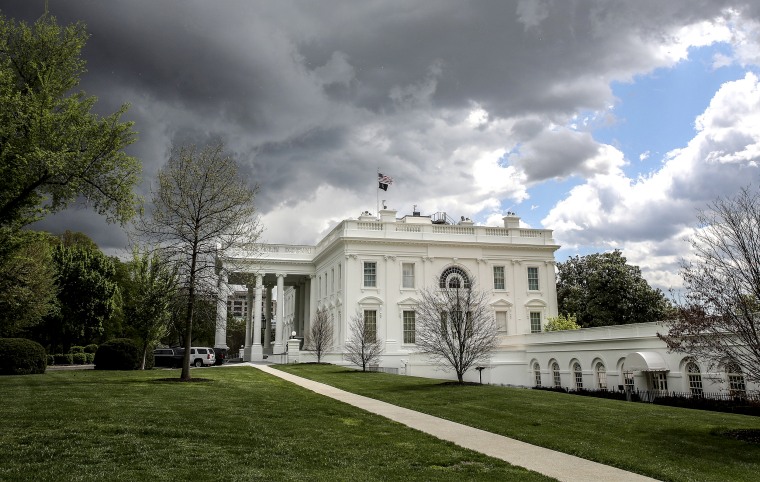There was a memorable moment in Donald Trump's interview with Axios' Jonathan Swan in which the president referred to a series of printouts that he said offered proof that the United States is "lower in the world" with regard to COVID-19 fatalities. The whole thing proved to be embarrassing, as the reporter tried to explain reality to the confused president.
But I found myself dwelling on those charts Trump was fumbling through during the interview. It's unlikely he printed them out himself, which meant aides prepared the materials for him.
And as we discussed, therein lies a problem: Trump is obviously flailing, and instead of having a White House staff that helps steer him in responsible directions, aides appear to be feeding his worst instincts, providing him with bogus "proof" that makes him feel better about his catastrophic failures.
It was not an isolated incident. The Washington Post had a brutal report over the weekend on Team Trump's "lost" summer, and the article highlighted the head-spinning dysfunction that's become common of late in the West Wing.
[W]ith polls showing Trump's popularity on the decline and widespread disapproval of his management of the viral outbreak, staffers have concocted a positive feedback loop for the boss. They present him with fawning media commentary and craft charts with statistics that back up the president's claim that the administration has done a great -- even historically excellent -- job fighting the virus.
A senior administration official involved in the pandemic response told the Post, "Everyone is busy trying to create a Potemkin village for him every day. You're not supposed to see this behavior in liberal democracies that are founded on principles of rule of law. Everyone bends over backwards to create this Potemkin village for him and for his inner circle."
I imagine some on the right will see this and suggest Trump might be the victim here. After all, if White House staffers are serving him poorly, feeding him incomplete and overly rosy information, the "positive feedback loop" will prevent the president from governing responsibly.
But those inclined to believe such an interpretation fail to appreciate the fact that Trump is responsible for the mess: aides "bend over backwards to create this Potemkin village" for him because the alternative is presidential tantrums. White House staffers who provide Trump with inconvenient truths are not White House staffers for very long.
That said, the president can share blame with his chief of staff, Mark Meadows, who clearly wasn't a wise choice for the post, and who appears ill-suited for the task at hand. From the article:
As the White House chief of staff, Mark Meadows is responsible for coordinating the vast executive branch, including its coronavirus response. But in closed-door meetings, he has revealed his skepticism of the two physicians guiding the anti-pandemic effort, Deborah Birx and Anthony S. Fauci, routinely questioning their expertise, according to senior administration officials and other people briefed on the internal discussions. Meadows no longer holds a daily 8 a.m. meeting that includes health professionals to discuss the raging pandemic. Instead, aides said, he huddles in the mornings with a half-dozen politically oriented aides -- and when the virus comes up, their focus is more on how to convince the public that President Trump has the crisis under control, rather than on methodically planning ways to contain it.
The dysfunction has been so severe that the Post's report added that the White House "had what was described as a stand-down order on engaging publicly on the virus through the month of June."
In other words, Team Trump wanted to change the public conversation, the deadly viral pandemic be damned, and those who inclined to focus on the coronavirus in June were effectively told to stick to the script.
The president's pandemic failures were not accidental. They were not unfortunate outcomes in the face of valiant efforts. They were the result of post-policy governance, featuring wholesale indifference toward data, evidence, expertise, and even reality.
